Genetics
-
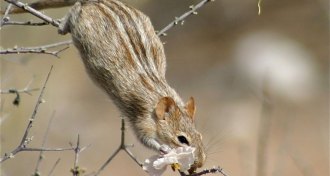 Genetics
GeneticsGene gives mice and chipmunks their pinstripes
A recycled regulator paints on rodents’ light stripes.
-
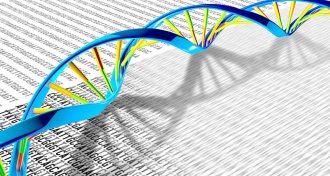 Genetics
GeneticsGenetic variant protects against rash of autoimmune diseases
A natural tweak in the TYK2 protein strikes a balance between weak and overactive immune systems.
-
 Genetics
GeneticsProtective genetic variant may offer a path to future autoimmune therapies
A natural tweak in the TYK2 protein strikes a balance between weak and overactive immune systems.
-
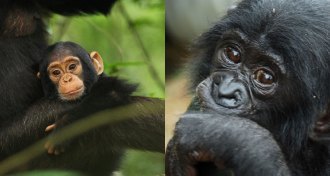 Genetics
GeneticsAncient hookups gave chimps a smidge of bonobo DNA
Genetic evidence suggests bonobos and chimpanzees interbred after becoming separate species.
-
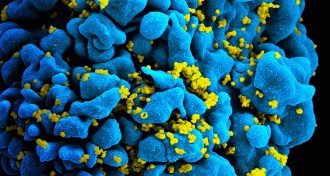 Genetics
GeneticsHIV came to NYC at least a decade before virus ID’d
DNA analysis of early viral strains tracks U.S. debut to early ’70s
-
 Genetics
GeneticsDNA data offer evidence of unknown extinct human relative
Melanesians may carry genetic evidence of a previously unknown extinct human relative.
-
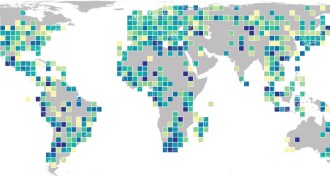 Animals
AnimalsMaps show genetic diversity in mammals, amphibians around the world
Maps of genetic diversity within mammal and amphibian species provide a baseline for understanding the effects of human activity and climate change on animals.
By Kate Travis -
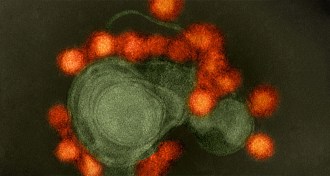 Genetics
GeneticsZika disrupts cellular processes to impair brain development
Discoveries about how Zika virus slows brain cell development could lead to treatments.
-
 Genetics
GeneticsReaders question the biology of alcoholism and more
Alcoholism-linked genes, making better corneas and more in reader feedback.
-
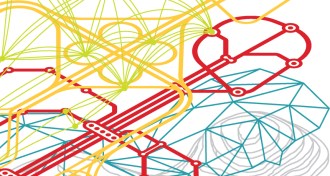 Genetics
GeneticsBig biological datasets map life’s networks
Expanding from genomics to multi-omics means stretching data capacity, but it may lead to a future of early diagnosis, personalized medicine and hardy crops.
-
 Genetics
Genetics‘Three-parent babies’ explained
Several in vitro techniques can produce babies with three biological parents.
-
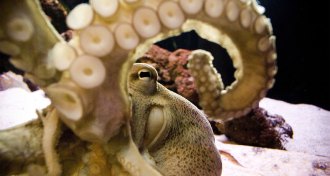 Genetics
GeneticsHow gene editing is changing what a lab animal looks like
What makes a good animal model? New techniques bring opportunities and challenges to model organisms.